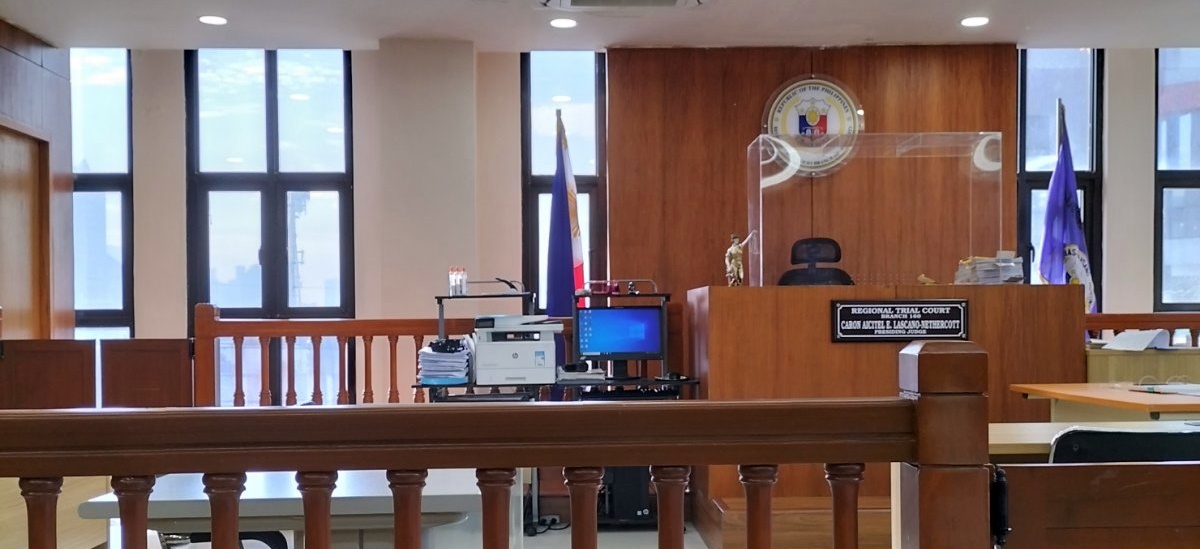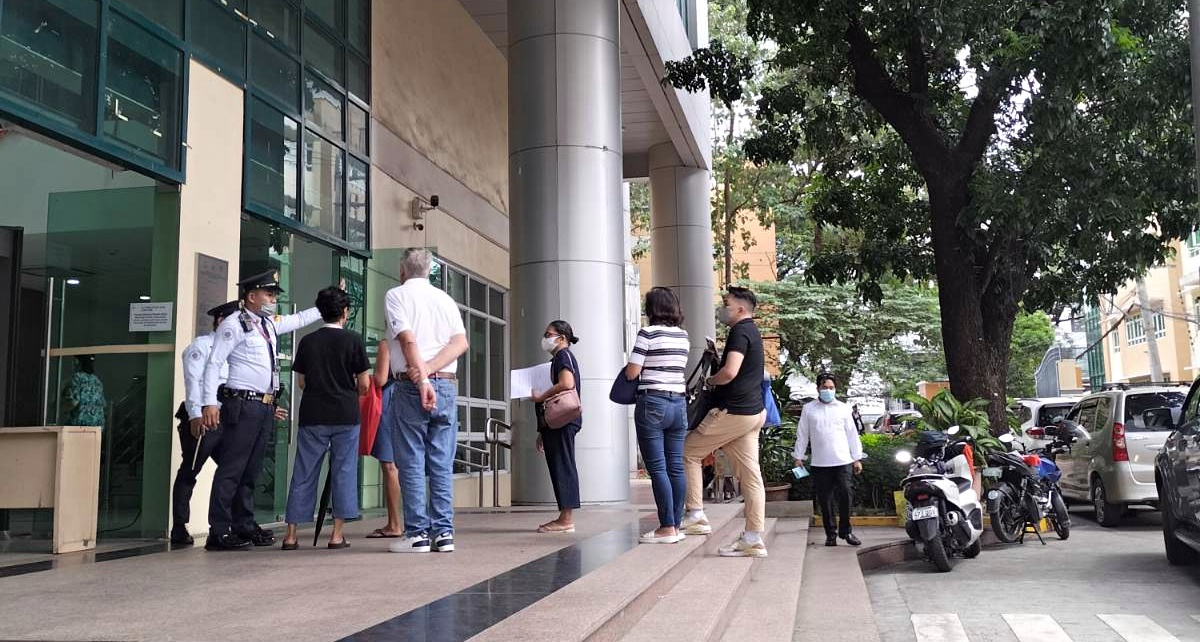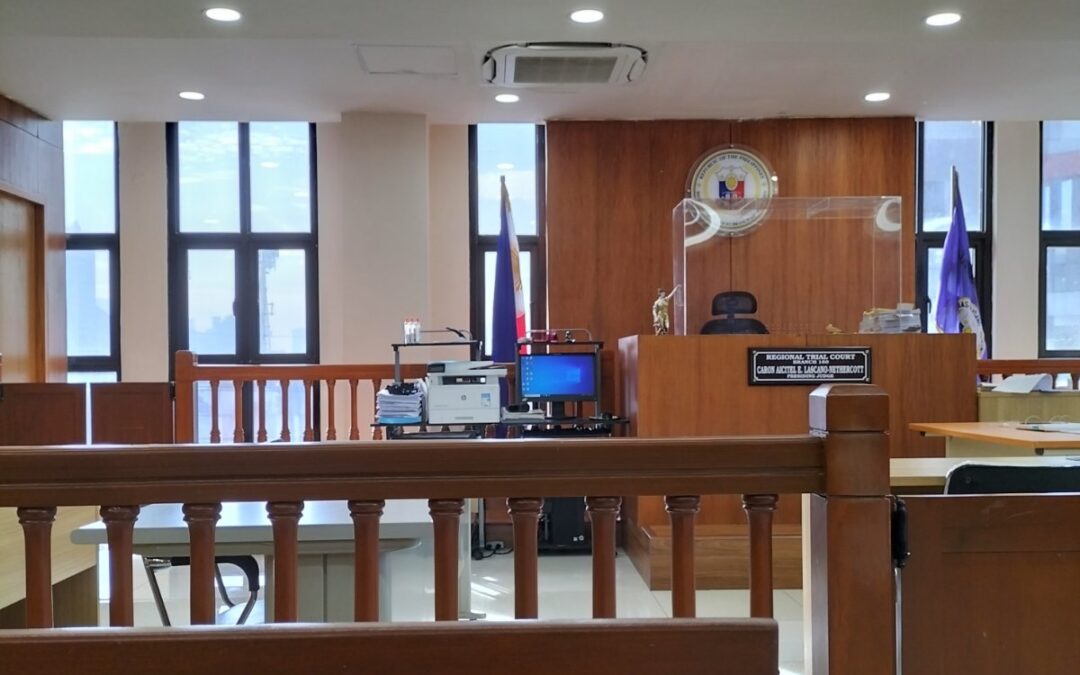What is the role of Philippine courts when it comes to Arbitral Awards?

Philippine courts have the authority to amend, revise, or revoke an arbitral award.
An arbitral award can by corrected, modified, or vacated by Philippine courts.
This article talks about the role of Philippine courts when it comes to arbitral awards, specifically:
- The jurisdiction of Philippine courts
- How an arbitral award is confirmed
- The grounds for modifying or correcting an arbitral award
- The grounds for vacating an arbitral award
- Judicial review of the findings of fact and of law
- And the procedural remedies of a party on a Court’s order about the arbitral award
The governing laws for the enforcement of arbitral awards in the Philippines are generally covered by the following:
- Republic Act No. 9285 (RA 9285)
- Its Implementing Rules and Regulations (IRR of RA 9285) and the
- Special Alternative Dispute Resolution Rules (Special ADR Rules)
Contents
- What is the venue and jurisdiction of Philippine courts when it comes to arbitral awards?
- How can an arbitral award be confirmed by Philippine courts?
- How can a Philippine Arbitral Award be corrected or modified?
- How can an Philippine Arbitral award be vacated?
- Can there be Philippine judicial review of the findings of law and fact?
- When can the Philippine court enter its judgment re the Arbitral Award?
- Can a party appeal the decision of the court?
What is the venue and jurisdiction of Philippine courts when it comes to arbitral awards?

This case will be docketed as a special proceedings case
Proceedings for the recognition and enforcement or for vacation or setting aside an arbitral tribunal (except appeal) shall be filed with the court:
- Where the arbitration proceedings are conducted
- Where the asset to be attached or levied upon, or the act to be enjoined is located
- Where any of the parties to the dispute resides or has its place of business
- In the National Capital Region at the option of the applicant
The cases to be filed are deemed as a special proceedings case.[1]
[1] Art. 5.39, IRR of RA 9285
How can an arbitral award be confirmed by Philippine courts?

If this petition is filed after the prescribed period, the court will reject it.
A party to a domestic arbitration may petition the court to confirm, correct or vacate a domestic arbitral award.[1]
The petition to confirm the arbitral award must be filed at any time after the lapse of thirty (30) days from receipt by the petitioner of the award.[2]
A petition to vacate the arbitral award may be filed in opposition to confirm the arbitral award not later than thirty (30) days from receipt of the award. This petition will be dismissed if filed beyond the reglementary period.[3]
The filing of a petition to confirm an arbitral award shall not authorize the filing of a belated petition to vacate or set aside such award in opposition to it.[4]
This must be filed in the RTC having jurisdiction over the place in which one of the parties is doing business, where any of the parties reside or where arbitration proceedings were conducted.[5]

The opposing party or his legal representative must get notice of the motion as required by law.
At any time within one month after the award is made, any party to the controversy may apply to the court having jurisdiction for an order confirming the award.
The Court must then grant the order unless the award is vacated, modified or corrected.
Notice of the motion must be served upon the adverse party or his attorney as prescribed by law for the service of such notice upon an attorney in action in the same court.[6]
In a special proceeding for recognition and enforcement of an arbitral award, the court shall send notice to the parties at their address of record in the arbitration.
[1] Rule 11.1, Special ADR Rules
[2] Rule 11.2(A), Special ADR Rules
[3] Rule 11.2(D), Special ADR Rules
[4] Rule 11.2(F), Special ADR Rules
[5] Rule 11.3, Special ADR Rules
[6] Sec. 23, RA 876
How can a Philippine Arbitral Award be corrected or modified?

A petition to amend or revise an arbitral award must be filed within 30 days from receipt of the award.
A petition to correct or modify an arbitral award must be filed not later than thirty (30) days from receipt of the award.[1]
A petition to correct an arbitral award may be included as part of a petition to confirm the arbitral award or as a petition to confirm that award.[2]
The Court may either correct or modify the arbitral award or order the arbitral tribunal to correct or modify the award in the following cases:
- Where there was an evident miscalculation of figures or an evident mistake in the description of any person, thing or property referred to in the award
- Where the arbitrators have awarded upon a matter not submitted to them not affecting the merits of the decision upon the matter submitted
- Where the arbitrators have omitted to resolve an issue submitted to them for resolution
- Where the award is imperfect in a matter of form not affecting the merits of the controversy
- If it had been a commissioner’s report, the defect could have been amended or disregarded by the Court[3]
The application to correct or modify an arbitral award may be included in a petition to confirm an award.
It can also be included in a petition to vacate in opposition to confirm the same award.[4]
[1] Rule 11.2(B), Special ADR Rules
[2] Rule 11.2(G), Special ADR Rules
[3] Rule 11.4(B), Special ADR Rules
[4] Rule 11.5, Special ADR Rules
How can an Philippine Arbitral award be vacated?

Generally speaking, an arbitral tribunal’s judgment can only be vacated or set aside by the court if it can be demonstrated unequivocally that the award is flawed or meets any other requirements for being vacated.
A petition to vacate an arbitral award must be filed not later than thirty (30) days from receipt of the award.[1]
A petition to confirm the arbitral award may be filed in opposition to a petition to vacate the award. This can be filed at any time after the petition to vacate such award is filed.
The dismissal of the petition to vacate the arbitral award for having been filed beyond the reglementary period shall not result in the dismissal of the petition for the confirmation of such arbitral award.[2]
As a general rule, the court can only vacate or set aside the decision of an arbitral tribunal upon a clear showing that the award suffers from any of the infirmities or grounds for vacating an arbitral award.

The proper court may contest, revoke, or set aside the arbitral award if the grounds are met.
The arbitral award may be questioned, vacated or set aside by the appropriate court only on the following grounds:
- The arbitral award was procured by corruption, fraud or other undue means.
- There was evident partiality or corruption in the arbitral tribunal or any of its members.
- The arbitral tribunal was guilty of misconduct or any form of misbehavior that has materially prejudiced the rights of any party.
- An example of this is refusing to postpone the hearing upon sufficient cause shown.
- Another example is refusing to hear evidence pertinent and material to the controversy.
- One or more of the arbitrators was disqualified to act as such and willfully refrained from disclosing such qualification.
- The arbitral tribunal exceeded its powers or so imperfectly executed them that a complete, final and definite award upon the subject matter submitted to it was not made.[3]

All other reasons for setting aside an award must be disregarded by courts.
These grounds for vacating an arbitral award are exclusive. Courts are obliged to disregard any other grounds invoked to set aside an award.[4]
The case of Tri-Mark[5] further explained these grounds:
“If the Regional Trial Court is asked to set aside an arbitral award in a domestic or international arbitration on any ground other than those provided in the Special ADR Rules, the court shall entertain such ground for the setting aside or non-recognition of the arbitral award only if the same amounts to a violation of public policy.
The court shall not set aside or vacate the award of the arbitral tribunal merely on the ground that the arbitral tribunal committed errors of fact, or of law, or of fact and law, as the court cannot substitute its judgment for that of the arbitral tribunal.”
Does this mean that an arbitral award is absolute?
No, it is not absolute.
The arbitrator/s cannot resolve issues beyond the scope of the submission agreement.
The parties to the agreement are bound by the award only to the extent and in the manner prescribed by the contract and only if the award is rendered in conformity to it.
While a court is precluded from overturning an award for errors in the determination of factual issues, the award must be vacated if an examination of the record reveals no support whatsoever for the arbitrators’ determinations.
An award must be vacated if it was made in “manifest disregard of the law”.[6]
[1] Rule 11.2(C), Special ADR Rules
[2] Rule 11.2(E), Special ADR Rules
[3] Art. 5.35(a), IRR of RA 9285
[4] Tri-Mark vs. Gintong Pansit, G.R. No. 215644, September 14, 2021
[5] Id.
[6] Asset Privatization Trust vs. CA, G.R. No. 121171, December 29, 1998
Can there be Philippine judicial review of the findings of law and fact?

Courts cannot modify an arbitral award in a way that goes against the underlying policy to preserve the autonomy of arbitral awards.
No, simple errors of fact, of law, or of fact and law committed by the arbitral tribunal are not justiciable errors.
This means that Courts are without power to amend or overrule merely because of disagreement with matters of law or facts determined by the arbitrators.
In line with the overriding policy to uphold the autonomy of arbitral awards, courts are precluded from revising an arbitral award in a particular way.
Revisiting the tribunal’s findings of fact or conclusions of law is considered as encroaching upon the independence of the arbitral tribunal.[1]
This was also explained in the case of Chung Fu Industries[2]:
“… the Court will not engage in a review of the facts found nor even of the law as interpreted or applied by the arbitrator unless the supposed errors of fact or of law are so patent and gross and prejudicial as to amount to a grave abuse of discretion or an exces de pouvoir on the part of the arbitrator.”
[1] Fruehauf Electronics vs. Technology Electronics, G.R. No. 204197, November 23, 2016
[2] G.R. No. 96283, February 25, 1992
When can the Philippine court enter its judgment re the Arbitral Award?

The court may, at its discretion, award the costs of the application and any subsequent proceedings.
Upon the grant of an order confirming, modifying or correcting an award, judgment may be entered in conformity therewith in the court where the application is filed.
The costs of the application and the succeeding proceedings may be awarded by the court in its discretion.
If this is awarded, the amount must be included in the judgment.
These judgments will be enforced like court judgments.[1]
[1] Art. 5.37, IRR of RA 9285
Can a party appeal the decision of the court?

It is necessary for the appellant to provide a counterbond that is executed in the winning party’s favor.
Yes, a losing party may file an appeal from the judgment of the Court confirming an arbitral award.
A decision of the court confirming, vacating, setting aside, modifying or correcting an arbitral award may be appealed to the Court of Appeals in accordance with the Special ADR Rules.
The appellant is required to post a counter-bond executed in favor of the prevailing party to the amount of the award in accordance with the Special ADR Rules.[1]
[1] Art. 5.38, IRR of RA 9285






0 Comments